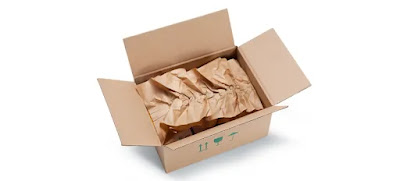When it comes to shipping products, it's essential to use
proper packaging materials to ensure they arrive at their destination in
excellent condition. Protective packaging materials serve as a barrier against
environmental hazards and provide cushioning to prevent damage to your products
during transit.
Here are some of the most common protective packaging
materials used today:
·
Bubble
Wrap: Bubble wrap is a flexible plastic sheeting with air-filled bubbles acting
as cushioning. It's commonly used to protect fragile items such as glassware,
electronics, and artwork.
·
Foam
Packaging: Foam packaging comes in various forms, such as foam peanuts,
foam sheets, and foam blocks. It's a versatile material that provides excellent
cushioning and shock absorption.
·
Cardboard
Boxes: Cardboard boxes are a staple in the packaging industry due to their
affordability, durability, and ease of customization. They come in various
sizes and can be reinforced with additional materials to provide extra
protection.
·
Padded
Envelopes: Padded envelopes are an excellent choice for shipping small,
lightweight items such as jewelry, documents, or small electronics. They
feature a padded interior to protect items from damage during transit.
·
Air
Pillows: Air pillows are an eco-friendly alternative to foam packaging.
They are lightweight and provide excellent cushioning for fragile items.
·
Packing
Peanuts: Packing peanuts are a popular choice for shipping fragile items.
They are made of expanded polystyrene foam and can be reused multiple times.
·
Stretch
Wrap: Stretch wrap is a flexible plastic film that's commonly used to
secure and protect palletized items. It's also used to bundle and protect small
items during transit.
When choosing protective packaging materials,
consider the type of product you're shipping, the shipping method, and the
potential hazards your package may encounter during transit. It's also
essential to comply with any shipping regulations and ensure that your package
is properly labeled.
In conclusion, protective packaging materials play a
critical role in ensuring that your products arrive at their destination in
excellent condition. By using the right packaging materials, you can protect
your products from damage and minimize the risk of returns and customer
dissatisfaction. Choose from the above options, and you'll be well on your way
to shipping your products safely and securely.

Comments
Post a Comment